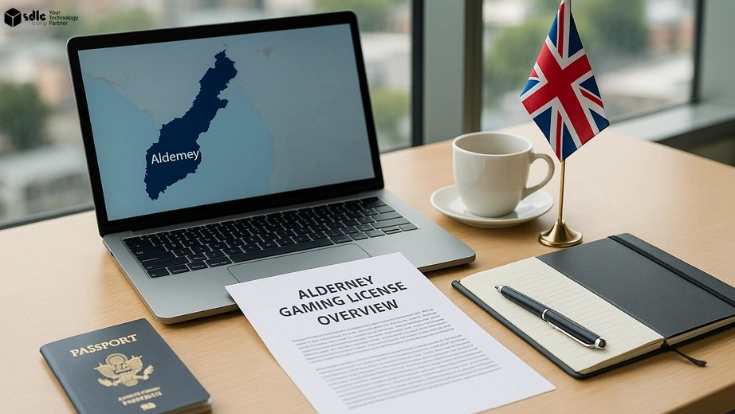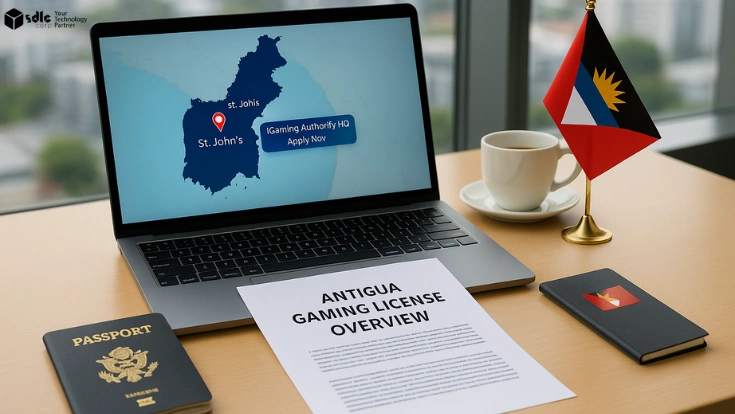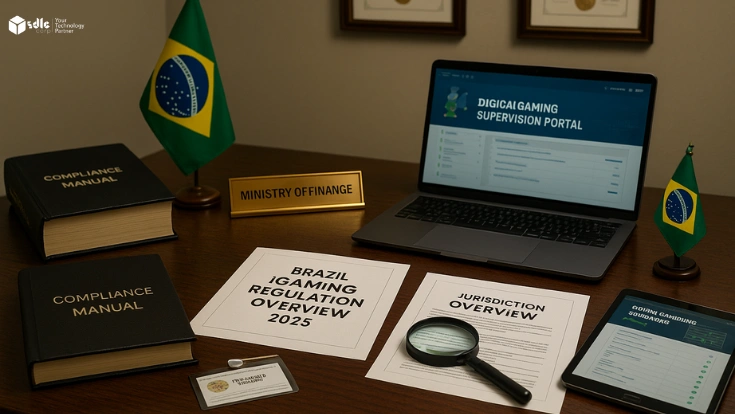Introduction
Singapore is a global financial hub with a well-regulated, transparent gambling industry. From casinos and sports betting to online gaming platforms, the country offers strong opportunities for licensed operators.
However, securing a Singapore gambling license requires proving financial stability, meeting strict compliance standards, and satisfying the Gambling Regulatory Authority (GRA). This guide covers everything you need to launch and maintain a legal gambling business in Singapore.
What Is a Gambling License in Singapore?
A gambling license is an official legal approval issued by the Singapore authorities allowing a business to offer gambling, betting, or gaming services.
Holding a license is essential to:
- Operate legally in Singapore
- Build trust with customers and payment providers
- Protect your business from severe penalties and regulatory action
In Singapore, gambling is heavily regulated to protect consumers and uphold integrity. Whether you plan to run a land-based casino or an online betting platform, you must understand the licensing process end-to-end.
Step 1: Understand the Regulatory Framework in Singapore

Gambling in Singapore is primarily governed by these laws:
Gambling Control Act 2022 (the main legislation for regulating gambling activities)
Casino Control Act (regulates land-based casinos)
Betting Act (addresses betting operations)
Key Regulatory Body:
Gambling Regulatory Authority of Singapore (GRA) – overseeing licensing, compliance, and enforcement.
Visit GRA Official Website
Gambling services that target Singapore residents without proper licensing are strictly prohibited. Violations can result in:
Fines up to SGD 1 million
Imprisonment
Permanent business closure
Step 2: Decide the Type of Gambling Service You Will Offer

Before applying, define your business model:
Land-Based Casino License Singapore
For operating a physical casino within Singapore. These are limited and granted only under the Casino Control Act.
Online Gambling License Singapore
Covers remote gambling operations (e.g., sports betting, lotteries) targeting Singapore players, subject to stringent restrictions.
Betting Operations
Licensed entities such as Singapore Pools are authorized to operate lotteries and sports betting.
Note:
Foreign operators typically provide international services to non-Singapore players under offshore licenses but must implement geo-blocking to prevent Singapore user access.
Step 3: Incorporate Your Business in Singapore

You must establish a Singapore-based company or register as an approved branch of a foreign entity.
Incorporation Requirements:
A local registered office address
At least one director residing in Singapore
Paid-up capital (varies by license type)
Company secretary appointed within 6 months
Tip:
Consult an experienced legal advisor to streamline this process.
Step 4: Foreign Companies Guide – Setting Up in Singapore

Many overseas businesses are interested in Singapore’s highly regulated but respected gaming environment.
Considerations for Foreign Operators:
You may need to establish a Singapore subsidiary.
Directors and major shareholders will undergo fit and proper checks.
You must provide evidence of compliance history in other jurisdictions.
Foreign applications typically require more rigorous due diligence.
Pro Tip:
Engage Singapore-based legal counsel experienced in gambling regulation.
Step 5: Prepare Your License Application Package

This step is often the most time-consuming. You must compile a comprehensive application file to demonstrate your readiness and compliance.
Required Documents:
Detailed Business Plan: Outlining your services, revenue models, marketing plans, and operational procedures.
Financial Statements: Evidence of solvency and funding sources.
AML and KYC Policies: How you will prevent money laundering and verify customer identities.
Technical System Certifications: Proof your gaming and payment systems meet GRA standards.
Key Personnel Information: Background checks and disclosures for directors, managers, and shareholders.
Responsible Gambling Measures: Self-exclusion protocols, deposit limits, and customer support processes.
Step 6: Submit Your Application to the Gambling Regulatory Authority

Once your application package is ready, you must submit it directly to the GRA and pay the relevant fees.
You can apply for a gambling license online here.
Typical Fees:
Application Fee: SGD 5,000–20,000 depending on license type.
Annual Licensing Fee: Varies based on revenue and activity.
Renewal Fees: Payable annually or every few years.
Processing Times:
Smaller-scale applications like private lotteries: ~3 months.
Large casinos or online gambling platforms: 6–12 months or more.
Be prepared for GRA to request clarifications or additional information during their review.
Step 7: Pay the Application & Licensing Fees

Cost Breakdown:
| Expense Category | Estimated Range (SGD) |
|---|---|
| Application Fee | 10,000–50,000 |
| Annual License Fee | 150,000–500,000+ |
| Technical Certification | 20,000–50,000 |
| Compliance Audits | 30,000+ per year |
| Office Setup | 50,000–200,000 |
| Staff Salaries (AML, Compliance, Technical) | Varies by team size |
| Marketing and Branding | 30,000–100,000 |
Tip: Budget for at least 12–18 months of operating expenses before launch.
Step 8: Undergo Compliance, Technical & Background Checks

The GRA will conduct extensive due diligence before granting a license:
Checks Include:
Background Screening: Criminal and regulatory history of directors, shareholders, and key managers.
Financial Vetting: Assessment of funding sources and solvency.
Technical Audits: Inspections of gaming systems, RNGs (random number generators), and payment infrastructure.
Operational Readiness: Verification of staffing, controls, and compliance programs.
AML and KYC Compliance: Policies must align with Singapore’s high standards.
If you fail any checks, your application may be rejected, so prepare thoroughly.
Step 9: Receive Your Singapore Gambling License

If approved, the GRA will issue a Singapore Gambling License Certificate detailing:
Permitted activities.
Conditions you must meet.
Validity period (generally 1–3 years).
Renewal timelines and procedures.
This certificate must be prominently displayed at your place of business and included in your customer-facing materials.
Step 10: Maintain Ongoing Legal & Operational Compliance

Ongoing obligations include:
- Quarterly and annual reporting
- Regular system audits
- Responsible gambling campaigns
- Maintaining geo-blocking if you target non-Singapore markets
- Submitting renewal applications before expiry
License Renewal Details:
Licenses are typically renewed annually.
Renewal requires updated documentation and payment of fees.
GRA can revoke or suspend licenses for non-compliance.
Receive expert guidance at every stage of your gaming license journey from documentation to approval. Our legal and compliance specialists make the process seamless across top jurisdictions. Need assistance? Talk to our team
Advertising Restrictions for Gambling Businesses in Singapore
Strict advertising laws prohibit:
Promotions targeting minors
Misleading claims about winning chances
Unlicensed operators from advertising in Singapore
Violations may lead to hefty fines or license revocation.
Gambling Taxation Structure in Singapore
Land-Based Casinos:
Gross gaming revenue (GGR) tax ranges from 15–25% depending on VIP vs. mass market segments.
Remote Gambling:
Taxation depends on license terms; consult the GRA or a tax advisor.
International Comparison: Why Singapore?
Singapore vs. Other Jurisdictions:
| Jurisdiction | Strengths | Challenges |
|---|---|---|
| Singapore | High credibility, clear laws | High compliance costs |
| Macau | Large tourism base | Limited online gambling options |
| Philippines | Flexible online licensing (PAGCOR) | Less stringent AML enforcement |
| Malta | EU market access for online ops | Complex cross-border taxation |
If your priority is regulatory certainty and a respected brand, Singapore is among the best choices globally.
Tips to Get Your Singapore Gambling License Faster
Engage a qualified legal advisor experienced in Singapore gambling regulations.
Prepare a clear, detailed application package.
Choose reputable gaming technology providers.
Appoint directors with no history of regulatory violations.
Document all AML and responsible gambling protocols before submission.
These best practices will increase your chances of smooth approval.
Future of Gambling in Singapore
Singapore is tightening controls on gambling, with new trends emerging:
Enhanced digital KYC and verification rules.
Expanded enforcement against unlicensed operators.
Greater focus on responsible gambling standards.
Potential for regulated online gambling expansions.
Staying ahead of regulatory changes is key to maintaining your license and competitive edge.
Potential new casino zones in tourist hubs
Tax policy reforms
Digital payment regulation updates
Growing pressure to legalize online gaming to capture tax revenue
Industry analysts expect significant changes by 2026–2028, creating opportunities for early entrants.
Also Read: How to Start Online Casino in Singapore?
Conclusion: Your Gateway to Singapore’s Gambling Market
Obtaining a gambling license in Singapore demonstrates your commitment to operating legally and responsibly in one of Asia’s most respected jurisdictions. Though the process is rigorous, the rewards include a trusted brand and access to a thriving market.
SDLC Corp helps you secure a Singapore Gambling License with complete support for company setup, regulatory compliance, and applications to the Gambling Regulatory Authority (GRA), so you can launch your gaming business legally and confidently.
FAQ's
Who issues gambling licenses in Singapore?
All gambling licenses in Singapore are issued by the Gambling Regulatory Authority (GRA). There are no provincial authorities everything is centrally regulated.
Can foreign companies apply for a Singapore gambling license?
Yes, but you must first incorporate a Singapore-based company, appoint a local director, and meet all compliance requirements set by the GRA.
How long does it take to get a gambling license?
Processing times vary by license type. Simple applications may take 3 months, while casino or online gambling licenses can take 6–12 months.
How much does it cost to apply for a gambling license in Singapore?
Application fees typically start around SGD 10,000 and can exceed SGD 50,000. You should also budget for annual license fees, technical certifications, and compliance audits.
What happens if you operate without a license?
Operating unlicensed gambling can lead to fines up to SGD 1 million, imprisonment, and seizure of assets. Always secure proper approval before starting operations.
Can SDLC CORP handle end-to-end development?
Yes, SDLC CORP handles end-to-end development, from concept to deployment. We cover design, coding, testing, and post-launch support for complete project delivery.





